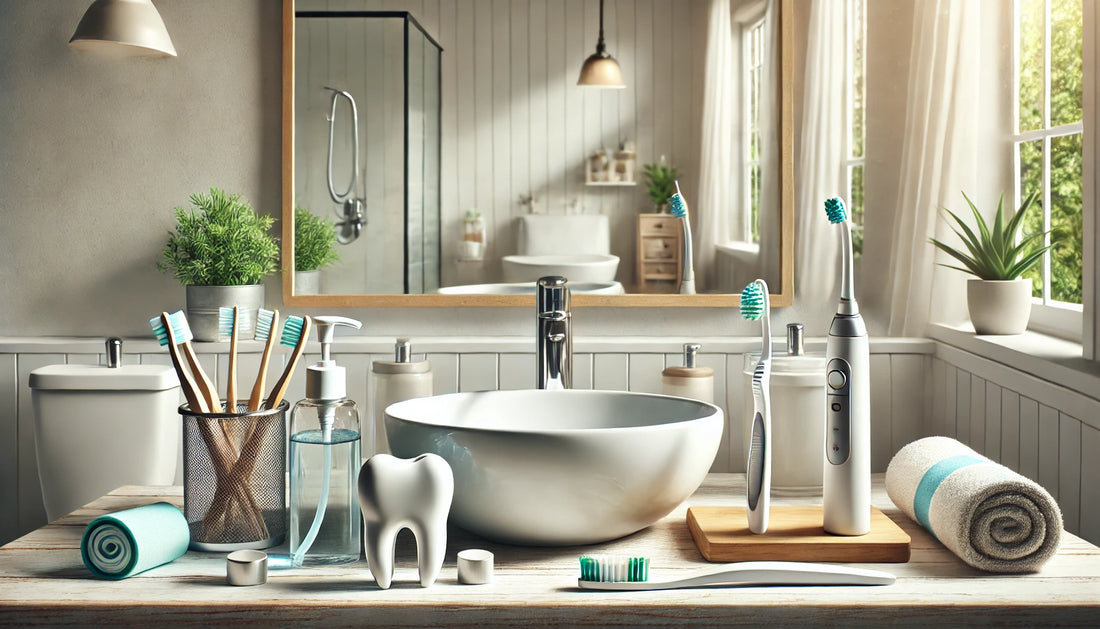Maintaining a healthy smile goes beyond just brushing your teeth. It involves a comprehensive approach to oral hygiene that includes using the right products and techniques to prevent cavities. Cavities, also known as dental caries, are one of the most common dental problems affecting people of all ages. This article provides essential tips for preventing cavities and maintaining a healthy, radiant smile.
Introduction
Cavities form when bacteria in your mouth produce acids that erode the enamel, the hard outer layer of your teeth. Without proper care, cavities can lead to pain, infection, and tooth loss. Preventing cavities requires a multifaceted approach to oral hygiene, including the use of healthy, natural toothpaste, water flossers, tongue scrapers, and electric toothbrushes.
Essential Tips for Preventing Cavities
1. Brush Regularly with Natural Toothpaste
Brushing your teeth at least twice a day is fundamental to preventing cavities. However, the type of toothpaste you use is equally important. Opt for a natural toothpaste free of fluoride, foaming agents, and artificial colors and flavors. These ingredients can be harsh on your teeth and gums, and natural alternatives can be just as effective.
- Why Natural Toothpaste? Natural toothpaste often contains ingredients like baking soda, clay, and essential oils that clean your teeth without harmful additives. Brands like ToothPow offer high-quality natural toothpaste that promotes oral health.
- How to Brush Effectively: Use a pea-sized amount of toothpaste and brush for at least two minutes. Make sure to cover all surfaces of your teeth, including the fronts, backs, and chewing surfaces.

2. Use a Good Electric Toothbrush
An electric toothbrush can provide a more thorough cleaning than a manual toothbrush. Look for a high-quality electric toothbrush with features like multiple cleaning modes, a quadrant timer, and soft bristles.
- Benefits of Electric Toothbrushes: Electric toothbrushes can remove more plaque and reduce gingivitis more effectively than manual brushing. The built-in timer ensures you brush for the recommended amount of time, and the oscillating or sonic movements help reach all areas of your mouth.

3. Floss Daily with a Water Flosser
Flossing removes plaque and food particles from between your teeth and under the gumline, areas that a toothbrush can't reach. A water flosser is an excellent alternative to traditional flossing.
- Why Use a Water Flosser? Water flossers use a stream of pulsating water to clean between teeth and along the gumline. They are especially beneficial for people with braces, implants, or sensitive gums. Regular use can reduce plaque and prevent gum disease.
- How to Use a Water Flosser: Fill the water reservoir, choose the appropriate setting, and aim the tip at the gumline. Move the flosser along your teeth, pausing briefly between each tooth.

4. Incorporate a Tongue Scraper into Your Routine
Bacteria can accumulate on your tongue, contributing to bad breath and dental problems. Using a tongue scraper helps remove these bacteria and keeps your mouth cleaner.
- Benefits of Tongue Scraping: Regular tongue scraping can reduce bacteria in the mouth, improve taste, and promote fresher breath.
- How to Use a Tongue Scraper: Gently scrape from the back of your tongue to the front, rinsing the scraper after each pass. Do this once or twice a day, preferably after brushing your teeth.
5. Maintain a Healthy Diet
Your diet plays a significant role in your oral health. Foods and drinks high in sugar and acids can contribute to the development of cavities.
- What to Eat: Focus on a diet rich in fruits, vegetables, whole grains, lean proteins, and dairy products. These foods provide essential nutrients that strengthen your teeth and gums.
- What to Avoid: Limit your intake of sugary snacks, sodas, and acidic foods. If you consume these, rinse your mouth with water afterward to help neutralize the acids.
6. Stay Hydrated
Drinking water helps wash away food particles and bacteria that can cause cavities. It also stimulates saliva production, which naturally protects your teeth by neutralizing acids and providing essential minerals.
- Why Hydration Matters: Saliva is your mouth's natural defense against cavities. It helps wash away food and bacteria and contains calcium and phosphate, which can help repair early tooth decay.
7. Regular Dental Check-ups
Visit your dentist regularly for professional cleanings and check-ups. Your dentist can detect early signs of cavities and provide treatments to prevent them from worsening.
- Frequency of Visits: Most dental professionals recommend visiting the dentist every six months. However, if you have a history of dental problems, you may need to go more often.
Conclusion
Preventing cavities involves a comprehensive approach to oral hygiene. By using natural toothpaste, a good electric toothbrush, a water flosser, and a tongue scraper, along with maintaining a healthy diet and staying hydrated, you can significantly reduce your risk of cavities. Regular dental check-ups are also essential to ensure your teeth remain healthy and cavity-free. Adopting these habits will help you achieve and maintain a bright, healthy smile for years to come.
For more tips on maintaining oral health and preventing cavities, visit ToothPow Dental Care and explore our range of dental products designed to support your smile.


